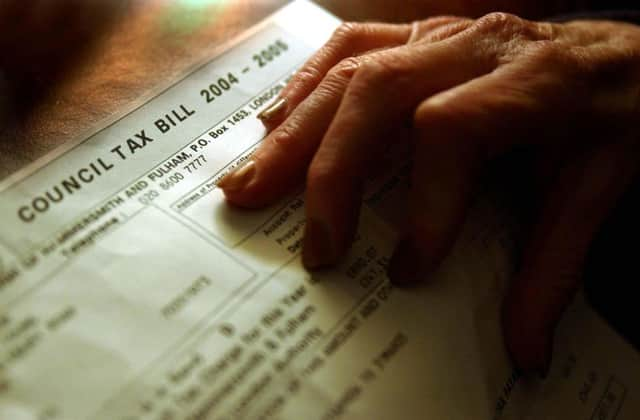Comment: At least we’re talking about council tax


Margaret Burgess, SNP MSP for Cunninghame South, also accused Labour’s Brian Donohoe of talking “nonsense about the freeze somehow hitting councils or local services”, adding that the policy was popular “with around 90 per cent of his constituents”.
That perceived popularity has stifled debate around the continuation of the freeze. But change is in the air. Last Monday, Holyrood set out plans that could see the ownership of private estates pass to local communities. The proposals were part of a Land Reform bill aimed at tackling land ownership inequality, while the same day was the deadline for submissions to the Commission on Local Tax Reform, which is looking at possible alternatives to the local tax system.
Advertisement
Hide AdAdvertisement
Hide AdThat includes council tax, which, as Holyrood announced proudly in February, has been frozen for the eighth successive year. It’s a popular measure, yet council tax is largely regressive and costs some £500 million to maintain.
Unison claimed last year that by 2020 the freeze will have contributed to the loss of more than 100,000 public sector jobs north of the Border, as well as adding to the pressure on public services.
That the council tax system badly needs to be overhauled or even replaced is not in doubt. The values on which council tax is based have long been out of date and its link with housing wealth is tenuous at best, deepening inequality as a consequence.
That its future is even being discussed is welcome after several years in which politicians on all sides have preferred to skirt around it. The imminent ratcheting up of Westminster-imposed austerity and the implications for local authority funding mean that council tax must be addressed. The growing concentration of wealth in property simply adds to the need for a rethink.
The most progressive option is probably land value tax, where the rate is based on the market value of the land alone. The obstacles to its implementation are significant – not least the full force of the property industry lobby – but so are its potential advantages, including disincentivisation to land hoarding and property speculation. It would also, crucially, be more progressive for those who pay it.
Others see an opportunity to decentralise tax to local councils and let them set their area rates and bands. While this has the benefit of increasing local authority accountability – and it could follow that public services improve as a result – there’s also the risk that local socio-economic factors lead to unfair differential rates between councils.
None of the alternatives are without their flaws, but all offer some improvement on the existing system. Council tax may well remain in place once all the dust has settled, in which case it must be reformed in line with present day property values.
Whether any of these proposals ever see the light of day is another matter. The opposition to any significant overhaul will be considerable, offering a timely test of the Scottish government’s often dubious claims to be a progressive administration. But after years of political obfuscation it’s progress in itself that we’re having the debate at all.